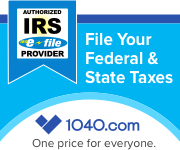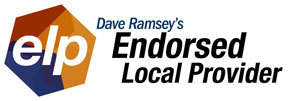Now, more than ever, it's important to keep your mind clear.
With so many of us spending more time than ever online and on our devices, there are even more opportunities for falling -- no, DIVING -- into rabbit holes of distraction and unproductive emotion.
Yes, I'm a local tax professional. We're not known for our deep emotions.
This might make me the perfect person to advise you on this matter: there is no benefit to marinating in fear; nor is there a benefit to marinating in a conspiracy.
Our nation feels like it is arguing and being ripped apart at the seams. Some might say this is a failure of leadership (they wouldn't be completely wrong) ... but I am here to tell you: you can only control what is within YOUR control.
Yes, there are many people out there who are confused/deluded/corrupt/wrong.
But will you really be winning hearts and minds with your snarky and hostile Facebook post that points this out?
It's something to consider...
All that aside, I shall now focus on that with which *I* am most associated: taxes and your economic stimulus payments.
First, here is the schedule for when paper check payments from the Economic Stimulus will be distributed. This concerns those who had not set up their direct deposit information with the IRS (which you can still update here:
https://www.irs.gov/coronavirus/get-my-payment).
Feel free to share this with your friends:
Taxpayer AGI | Check Mailing Date
- Less than $10,000 | April 24
- $10,001 - $20,000 | May 1
- $20,001 - 30,000 | May 8
- $30,001 - 40,000 | May 15
- $40,001 - 50,000 | May 22
- $50,001 - 60,000 | May 29
- $60,001 - 70,000 | June 5
- $70,001 - 80,000 | June 12
- $80,001 - 90,000 | June 19
- $90,001 - 100,000 | June 26
- $100,001 - 110,000 | July 3
- $110,001 - 120,000 | July 10
- $120,001 - 130,000 | July 17
- $130,001 - 140,000 | July 24
- $140,001 - 150,000 | July 31
- $150,001 - 160,000 | August 7
- $160,001 - 170,000 | August 14
- $170,001 - 180,000 | August 21
- $180,001 - 190,000 | August 28
- $190,001 - 198,000 | September 4
- Remaining checks | September 11
This might be frustrating, but again -- fill out your direct deposit info, and you might be able to speed up that process.
Secondly, allow me to address some myths that are somehow going around about these payments:
Myth 1: Everybody is getting a payment.
Nope. You won't get any COVID-19 relief money if your AGI is more than $99,000 for single filers; $136,500 for head-of-household taxpayers; or $198,000 for married couples filing jointly.
Myth 2: Unemployment benefits disqualify you from getting the payment.
Again, nope.
The federal relief payments being distributed now are based on the amount of money you made either in 2018 or 2019. The Treasury and IRS don't care what you're making (or not) in 2020.
Myth 3: The stimulus payments will be taxed.
The relief money is not income. It is a tax credit. Just like the Child Tax Credit or Earned Income Tax Credit, it's a tax break that's calculated based on your eligibility and is used to offset any tax you owe. Tax credits aren't taxed.
Which is why you probably should have someone who knows what they're doing to file your taxes (ahem).
Myth 4: If you got "too much", you have to pay it back.
Thankfully, no. If you got an overly large amount based on your 2018 or 2019 returns, don't worry about it.
The IRS says that even if your 2020 tax return (for which the payment is an "advance tax credit") shows you should have received less, you get to keep the overpayment that the government gave you this year.
That's because at the time the IRS calculated the COVID-19 relief amount you were due, the agency was using the latest info it had, your prior filings. So even though it technically is a 2020 tax year advance credit, the timing of its early delivery means that the IRS doesn't care about your 2020 money, at least as far as the COVID-19 economic relief payment is concerned.
Myth 5: I can speed up my payment with this one trick.
The only surefire way to get your COVID-19 economic relief payment more quickly is to get your direct deposit data to the IRS using the enhanced
Get My Payment tool. If the IRS doesn't have that information, it will mail you a paper check via the U.S. Postal Service. But you need to hurry. If, when you do try to let the IRS know your bank info, you find that it's already decided you'll get a paper check, you can't change that. You'll get a paper check.
So don't fall for "offers" that promise to get you your COVID-19 money more quickly.
Myth 6: You should handle all of this alone.
No way.
We're in your corner.
You know where to find us, and we have your back.
Warmly,
Mike Mead, EA, CTC
Alliance Financial & Income Tax
807 NW Vesper Street
Blue Springs, MO. 64015
P - 816-220-2001 x201
F - 816-220-2012
"CRISIS Action Plan" for my clients:
1) Don't marinate in other people's panic. Be mindful of your social media consumption.
2) Continue to stay financially and logistically prepared for worsening situations.
3) Make sure you have some ready, liquid assets if you are able. (I.e., cash in the bank, and in hand.)
4) Set aside plans for any big spending until the dust settles -- but especially lookout for your small business owner friends and vendors.








